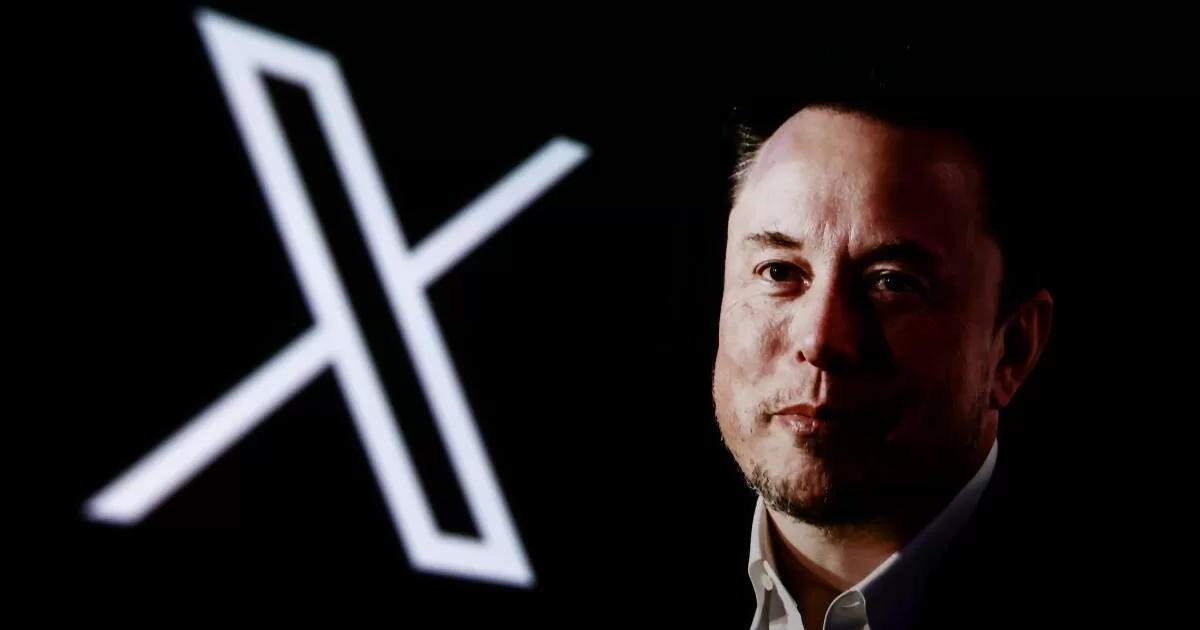X, the social media app owned by Elon Musk, has sued California in an attempt to block a new law requiring large online platforms to remove or label deceptive election content.
The lawsuit, filed in federal court this week, targets a law that aims to combat harmful videos, images and audio that have been altered or created with artificial intelligence. Known as deepfakes, this type of content can make it appear as if a person said or did something they didn’t. The law is scheduled to take effect Jan.1.
Assembly Bill 2655 was one of three bills California Gov. Gavin Newsom signed into law this year to address growing concerns about deepfakes ahead of the 2024 U.S. presidential election. California lawmakers have been trying to mitigate technology’s potential risks but also face backlash from powerful tech executives wary of efforts they see as possibly restricting users’ online speech.
The focus on election deepfakes came after Newsom sparred online with Musk, who shared a viral video of Vice President Kamala Harris that used AI to alter what the Democrat said in one of her campaign ads. Republican Donald Trump, who had Musk’s strong backing in his successful run to reclaim the presidency, also posted deepfake images of Taylor Swift that falsely suggested the megastar had endorsed him.
X alleges the new law would prompt social media sites to lean toward labeling or removing legitimate election content out of caution.
“This system will inevitably result in the censorship of wide swaths of valuable political speech and commentary,” the lawsuit states.
According to the lawsuit, the law runs afoul of free speech protections in the U.S. Constitution and a federal law known as Section 230, which shields online platforms from liability for user-generated content. X, which moved its headquarters from San Francisco to Texas this year, is suing California Atty. Gen. Rob Bonta and Secretary of State Shirley Weber to block the law.
“The California Department of Justice has been and will continue to vigorously defend AB 2655 in court,” a spokesperson for Bonta said in a statement.
X didn’t immediately respond to a request for comment, and the secretary of state’s office said the agency doesn’t comment on pending litigation.
Assemblymember Marc Berman (D-Menlo Park), who introduced AB 2655, said in a statement that he had reached out to X representatives to gather feedback about the legislation before lawmakers voted on it.
“I had hoped they would engage constructively with me during the legislative process. I was not surprised when they did not. I defer to the DOJ on any lawsuits,” Berman said in a statement.
Newsom’s office noted that AB 2655, known as the Defending Democracy from Deepfake Deception Act of 2024, exempts parody and satire content. The governor’s office said it’s confident the state will prevail in court.
“Deepfakes threaten the integrity of our elections, and these new laws protect our democracy while preserving free speech — in a manner no more stringent than those in other states, including deep-red Alabama and Mississippi,” Tara Gallegos, a spokesperson for the governor, said in a statement.
X, though, alleges it would be difficult for social media companies to determine whether a user’s post was meant in jest, noting that opinions on the AI-altered video of Harris differed.
X along with social media giants such as Facebook’s parent company Meta, TikTok and Google-owned YouTube have policies about manipulated media. X’s rules bar users from sharing deceptive manipulated media that could lead to harm and says that in some cases this content may be labeled.
Although Musk has declared himself a “free speech absolutist,” the company’s approach to enforcing the platform’s rules is to restrict the reach of potentially offensive posts rather than pull them down. However, regulators, civil rights groups and users have criticized social media platforms, including X, for not doing enough to enforce their own rules.
With an increase in AI-generated election misinformation appearing on social media, the laws passed in the run-up to this month’s election were meant to bolster one California already had on the books, which bars people from distributing deceptive audio or visual media intended to harm a candidate’s reputation or deceive a voter within several weeks of an election.
In October, a federal judge blocked another of those laws, Assembly Bill 2839, while a legal challenge to it plays out. That law would prohibit the distribution of deceptive campaign ads or “election communication” within 120 days of an election.
And X has tried to block new California laws that target social media platforms before. Last year, Musk sued over another state law that requires platforms to disclose how they moderate content. X failed to block AB 587 but then won an appeal in September.
